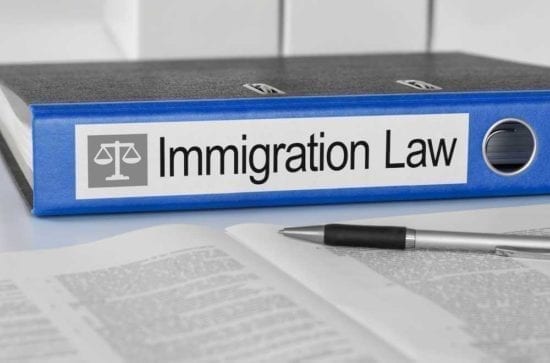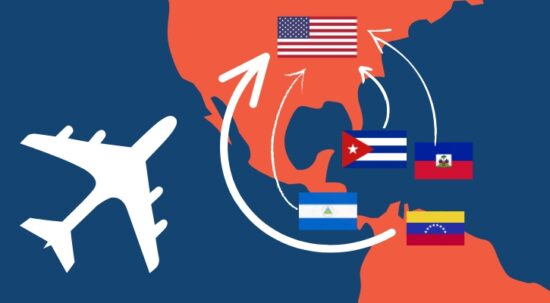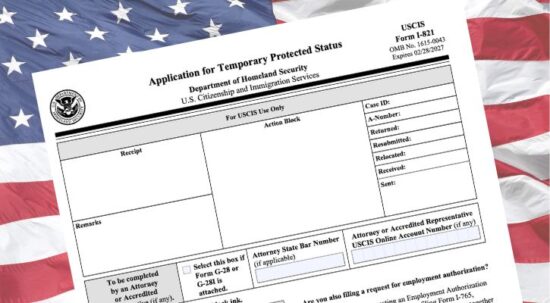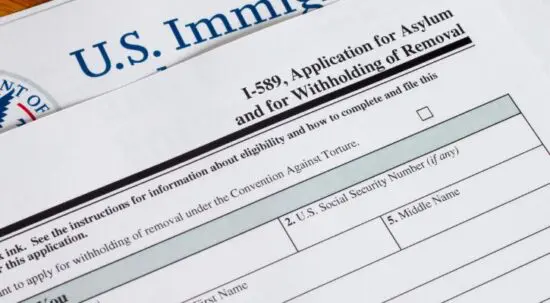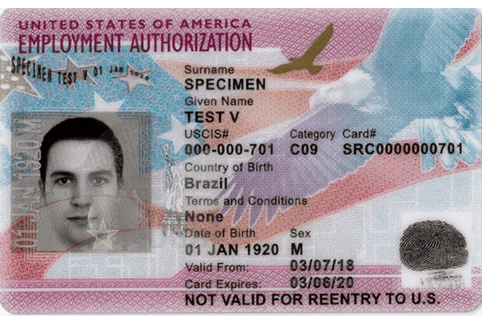Что такое TPS
Временный защищенный статус (TPS) - это форма иммиграционного статуса для людей, уже находящихся в Соединенных Штатах. TPS предназначен для людей, которые не могут вернуться в свою страну из-за опасности, например, вооруженного конфликта или экологической катастрофы.
Если у вас есть TPS, вы можете:
- Находиться в США на законных основаниях в течение определенного времени
- Подайте заявление на получение разрешения на работу в США.
- Заявка на поездку за пределы США
- Быть защищенным от задержания и депортации
Вы не получите никаких преимуществ TPS до тех пор, пока ваше заявление не будет одобрено. TPS - это временное явление. Она не дает вам законного постоянного статуса, гражданства или какого-либо постоянного иммиграционного статуса.
| Для получения более подробной информации перейдите на страницу USCIS TPS Haiti. |
Новые заявители,
Кто может обратиться
Чтобы подать заявку, вы должны соответствовать следующим требованиям:
- Быть гражданином Гаити или лицом без гражданства, которое проживало на Гаити в течение длительного времени до приезда в США
- Проживать только в США с 3 июня 2024 года
- Не выезжали за пределы США после 4 августа 2024 года, что могло бы повлиять на право на участие в программе
Вам может не полагаться статус временной защиты, если вы совершили определенные преступления.
| лицо, находящееся на государственном содержании не распространяется на заявителей TPS. Вы можете воспользоваться любыми государственными программами, на которые имеете право. |
Как подать заявку
Вы можете подать заявление на получение TPS на Гаити, заполнив форму I-821. Вы можете подать заявление в USCIS онлайн или по почте.
Вам необходимо отправить документы, подтверждающие вашу личность, гражданство и дату въезда. Они перечислены в разделе «Что подавать» .
Вы должны заплатить сбор, если подаете заявление на получение TPS впервые. Возможно, вы сможете подать заявление об освобождении от оплаты, если вы не можете позволить себе ее оплатить. Узнайте , как пользоваться калькулятором пошлин USCIS.
Важно подать заявку как можно скорее. Последний день подачи заявления - 3 августа 2025 года, но в это же время заканчивается действие TPS для Гаити.
Что будет дальше?
USCIS рассмотрит ваше заявление и отправит вам уведомление о получении. Вы можете проверить статус вашей заявки онлайн, введя номер квитанции. Если вы не получили квитанцию в течение 3 недель после подачи документов, вы можете позвонить в контактный центр USCIS.
Вы можете получить письмо с просьбой предоставить дополнительные данные. Это могут быть ваша фотография, отпечатки пальцев, подпись и другие документы.
Вы получите письмо с одобрением или отклонением вашей заявки. Если вы подали заявление на получение разрешения на работу, вы также получите информацию о вашем заявлении.
Если вы не получите TPS, то вам сообщат, можете ли вы обжаловать это решение и каким образом.
Текущие владельцы TPS
Срок действия TPS был изменен на 12 месяцев. Вы больше не будете иметь права на получение пособий до 3 февраля 2026 года. Ваши льготы действительны до 3 августа 2025 года. USCIS не будет выдавать новые документы с новым сроком действия.
Если у вас уже есть TPS для Гаити в соответствии с предыдущим назначением, вы должны пройти перерегистрацию до 30 августа 2024 года, чтобы сохранить свои льготы до 3 августа 2025 года.
Разрешение на работу
Людям с TPS доступно разрешение на работу, которое называется документом, разрешающим трудоустройство (EAD). Она показывает работодателям, что вам разрешено работать в США.
Вы можете подать заявление на получение разрешения на работу, заполнив форму I-765. Рекомендуется подавать заявление одновременно с заявлением на TPS. Подача обеих форм вместе может помочь вам быстрее получить EAD. Вы также можете подать заявку позже.
Если вы подадите заявление на получение нового EAD в течение текущего периода регистрации, ваше разрешение на работу будет действительно до 3 августа 2025 года. USCIS не будет выдавать новые разрешения на работу с этой новой датой.
Если вы получили TPS в соответствии с предыдущим назначением, USCIS автоматически продлил срок действия EAD для держателей TPS Haiti до 3 августа 2025 года для тех, чьи EAD истекли в следующие даты:
- 3 августа 2024 г.
- 30 июня 2024 г.
- 3 февраля 2023 г.
- 31 декабря 2022 г.
- 4 октября 2021 г.
- 4 января 2021 г.
- 2 января 2020 г.
- 22 июля 2019 г.
- 22 января 2018 г.
- 22 июля 2017 г.
Разрешение на поездку
Разрешения на поездки доступны людям с TPS. Он известен как условно-досрочное освобождение. Она показывает сотрудникам иммиграционной службы, что вам разрешено выезжать за границу и возвращаться в США.
Вы можете подать заявление на получение разрешения на поездку, заполнив форму I-131. При подаче заявления на получение разрешения на поездку следуйте инструкциям Федерального регистра.
Прежде чем выезжать за пределы США, посоветуйтесь с юристом. Правила иммиграции могут измениться, поэтому важно знать, безопасно ли путешествовать.
Что произойдет, если срок действия TPS истечет?
До 4 июня 2025 года правительство США рассмотрит вопрос о сохранении или прекращении действия этого статуса. Будьте готовы к тому, что это может закончиться.
Если у вас нет другого легального иммиграционного статуса, кроме TPS, вы станете нелегалом и потеряете разрешение на работу. Если вы останетесь без легального статуса, вы рискуете быть задержаны и депортированы.
Как подготовиться
- Поговорите с иммиграционным юристом. Важно обратиться за юридической помощью и узнать о вариантах вашего пребывания в США.
- Подать заявление на другой иммиграционный статус если вы имеете на это право. Проверьте, имеете ли вы право на получение убежища, законного постоянного статуса (грин-карта) или других виз США.
- Будьте готовы к ICE. Узнайте, что делать, если у вас нет документов, а агенты приходят к вам домой или на работу. Знайте свои права и как составить план безопасности.
- Будьте в курсе. Узнайте больше об изменениях в иммиграции при новой администрации.

Узнайте, как найти бесплатную или недорогую помощь у надежных иммиграционных адвокатов и законных представителей.
Информация на этой странице предоставлена DHS, USCIS, и заимствована из других надежных источников. Наша цель — предоставить читателям понятную и актуальную информацию. Данная информация не равноценна юридической консультации.
